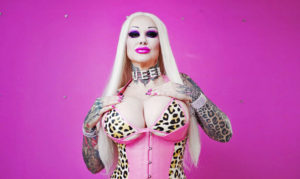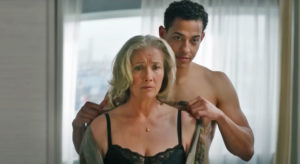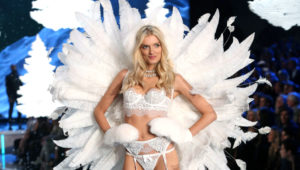The late Rush Limbaugh once said that feminism was created to “allow ugly women access to society” — a comment all the crueller because it was true. A central tenet of feminism is that a woman’s social value should be predicated on her humanity, not her beauty. The only legitimate response to being called ugly, then, is surely a shrug: yes, and? So what? But Limbaugh’s comments were met with outrage, for the most obvious, human reason: even feminists want to be beautiful.
These competing forces — a resentment of punishing beauty standards on one hand, and on the other the yearning to be beautiful oneself, with all the privileges that entails — have long been a source of tension, one that the movement keeps trying to resolve by treating beauty not as an objective quality, but a resource to which all women are entitled. Hence the endless campaigns telling women that they’re beautiful no matter what they look like, that they deserve to feel beautiful, that beauty is something every woman possesses in her own way.
The latest iteration of this phenomenon is a howler of a trend piece, which was published at the weekend by the New York Times — and subsequently went off-the-charts viral. “A social media movement inspired by the rapper Megan Thee Stallion strikes back at the gatekeepers of beauty,” announces the subhead. This movement sees being “hot” not as the condition of being physically attractive or sexually desirable, but as a state of mind, a vibe. Gone are the days when being hot required that another person bestow the label upon you. If you identify as hot, then you are.
The NYT piece goes on to enumerate all the ways in which young women “are expanding the definition of hotness, taking it beyond its former association with old notions of attractiveness”. You can be hot by doing things like eating spaghetti, cleaning grout, graduating from law school, and taking walks. In fact, the hotness of a given endeavour seems defined less by the activity itself than by the fact that the woman doing it is a) conventionally attractive, and b) under the age of 30. (Meet the new hotness, same as the old one.)
There is nothing original here. It is a truth universally acknowledged that young people like to mess around with language, walling themselves off with vernacular from the generations that came before them. Before the vibe shift there were trends, or the zeitgeist; before the hot girl there was the cool girl; the feminists of the Seventies trashed their sisters while their granddaughters cancel each other.
But the idea that hotness could have nothing whatsoever to do with beauty, or the male gaze, or even the most nebulous idea of being hot to another person… well, this is also not new. We — that is, women — have tried this before.
It’s 1945 in the fictional village of Bedford Falls, New York: a young woman named Violet Beck responds to a compliment on her dress with a scoff, “What? This old thing?”
It’s 2017: Karlie Kloss is just having a casual cup of tea in her bathrobe, not trying to look nice or anything.
It’s 2022: a TikTok influencer named Mia Lind is taking a “hot girl walk”, the tenets of which are self-affirmation, self-reflection, and goal-oriented thinking. (“You may not”, Lind says, “think of boys or boy drama”, a great new riff on that old gag where you tell someone not to think of an elephant. Of course I’m thinking about boy drama now.) The hot girl walk is a four-mile exercise in cultivating confidence. It has nothing to do with looking good, as you can tell by the photos Lind posts of herself on her walks, in which she looks absolutely hideous.
Here, oddly enough, both contemporary feminism and the patriarchy seem to be in agreement: the opposite of “hot” is trying too hard. A truly beautiful woman is not like other girls. She’s effortless, unassuming, even unaware of how alluring she is — because she’s either too modest to acknowledge it, or too liberated to care.
That is not to say that the women professing to reclaim and reboot “hot” for the masses are lying, exactly. They’re in their twenties, perhaps the only time in one’s life when it is genuinely possible to be hot by accident, or at least without too much effort. But let’s be clear: when a woman posts a video of herself eating spaghetti and receives a lustful outpouring in return, it’s not because of her confidence. It’s because she’s a conventionally attractive 28-year-old putting something in her mouth.
Of course, it would be nice if it were otherwise. And periodically, we flirt with the idea that everyone can be beautiful: that we can change our lives, even change the world, by changing our words. That you can put hotness out into the universe, so to speak, and convince the world to desire you simply by calling yourself desirable. Granted, this change in mindset might prove transformative for some people, in the same sense that the makeover scene in your average teenage rom-com transforms the nerdy nobody into a beautiful prom queen: it only works if she was beautiful all along.
But wanting to be wanted is out of style, too: that’s why it’s so important to launder the basic, embarrassing desire to be considered desirable until it comes out on the other side, nice and clean and feminist. The litany of defences is so familiar that it not only approaches, but already is, parody. I’m wearing makeup and sexy lingerie, for myself. I’m losing weight and getting a boob job, for myself. No one is going to love me if I don’t love myself first, not that I want anyone to love me, I’m entirely above that, and I am definitely not thinking about boys or boy drama on my hot girl walk — for which I have donned a crop top and a pair of the smallest shorts that offer just a peek of my underbutt area, just for, who else, myself.
That the hot girl walking might want to think about boys instead of life goals, or envision herself romantically partnered as one of those life goals, is obviously not to be discussed. Wanting to be pretty or desirable, or worse, wanting to be these things to men, is something the truly empowered woman must deny, deny, deny. (Remember when Victoria’s Secret jumped on the rebranding bandwagon last year, with newly-minted spokesmodel Megan Rapinoe decrying the harm done to young women by heteronormative underwear advertisements?) As with every prior iteration of this attempt to simultaneously exploit and eschew the male gaze, reclaiming and expanding the idea of “hot” is a new twist on the retrograde idea that a woman’s value to society is dependent on gaining access to the “hot” category. A beauty pageant that takes all comers is still a beauty pageant.
But alas, diluting the meaning of the word so that “hotness” comes to encompass anything a woman of a given age might do is not the same as actually making hotness accessible to the masses. People invariably notice that even in a world where everyone has been freshly christened as “hot” by definitional fiat, a much smaller group of people are still “hot” according to the original meaning of the word. No matter how we torture our language and ourselves, human beings still notice and appreciate the beautiful things, and people, among them. It will never be otherwise, and do we really want that? Wouldn’t it be better to just appreciate what is beautiful, while striving for what is fair?
But like so many grand goals in activism, that would take courage, and work, and extraordinary disruption — including, in this case, the courage to not just demand access to society on behalf of “ugly women”, but to identify as one of them. To admit that beauty, or hotness, or whatever you want to call it, is simply not within reach. Who wants to be the first to let that particular dream die? Of course we’d rather keep insisting that hot is a vibe. Of course we’d rather believe that beauty is accessible to all. It is not just easier, but nicer to imagine a world in which all it takes to be hot is to say you are, than one in which hotness has ceased to matter at all.
Disclaimer
Some of the posts we share are controversial and we do not necessarily agree with them in the whole extend. Sometimes we agree with the content or part of it but we do not agree with the narration or language. Nevertheless we find them somehow interesting, valuable and/or informative or we share them, because we strongly believe in freedom of speech, free press and journalism. We strongly encourage you to have a critical approach to all the content, do your own research and analysis to build your own opinion.
We would be glad to have your feedback.
Source: UnHerd Read the original article here: https://unherd.com/





